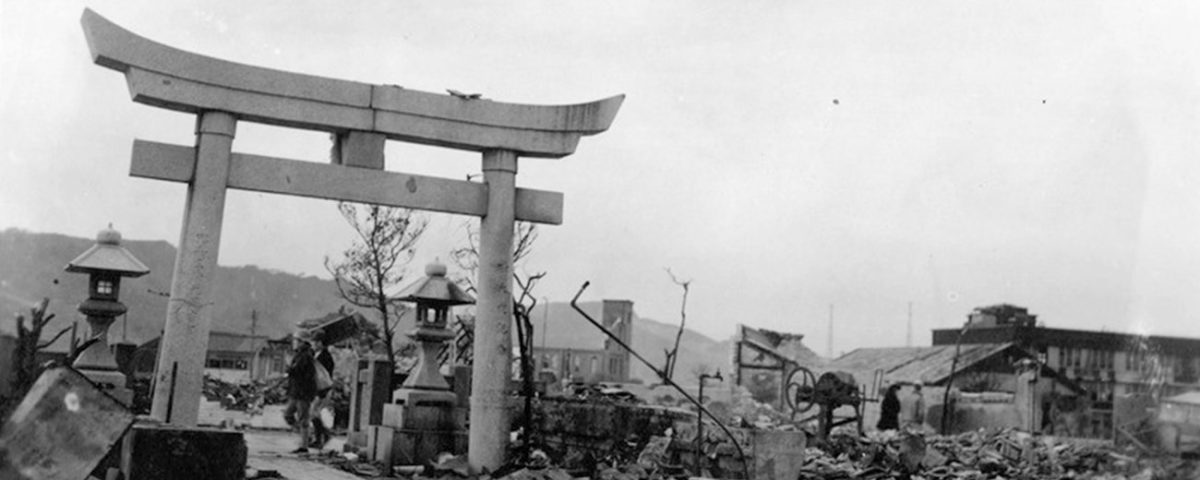Nagasaki and Hiroshima Memorial Day is observed to commemorate the tragic events that occurred during World War II when atomic bombs were dropped on the Japanese cities of Hiroshima and Nagasaki. The bombings took place on August 6, 1945, in Hiroshima, and August 9, 1945, in Nagasaki, resulting in massive loss of life and widespread devastation.
In the closing days of World War II, on August 6, 1945, the United States delivered a devastating blow to the Japanese city of Hiroshima by dropping an atomic bomb called “The Little Boy.” The destructive power of this nuclear weapon instantly wiped out tens of thousands of lives and left a city in ruins. Just three days later, on August 9, 1945, the city of Nagasaki faced a similar fate when the atomic bomb “Fat Man” was unleashed, inflicting further casualties and destruction on the already war-torn landscape. These catastrophic events marked a dark chapter in human history, underscoring the destructive capabilities of nuclear warfare.
The names “Little Boy” and “Fat Man” have since become synonymous with the tragic events that unfolded in Hiroshima and Nagasaki, serving as poignant reminders of the devastating impact of nuclear weapons. The bombings not only brought about immediate death and destruction but also unleashed long-term consequences such as radiation sickness and genetic mutations among survivors. The anniversaries of these bombings are now observed as solemn memorial days to honor the victims, reflect on the horrors of war, and advocate for peace and nuclear disarmament, ensuring that the memory of Hiroshima and Nagasaki remains a poignant reminder of the enduring quest for a world free from the threat of nuclear annihilation.The bombings took place on August 6, 1945, in Hiroshima, and August 9, 1945, in Nagasaki, resulting in massive loss of life and widespread devastation.
It is estimated that about 140,000 people died as a direct result of atomic bombing by the United States of America in Hiroshima and Nagasaki During World War ll. The survivors of the atomic bombing known as the “Hisabuska”, faced long-term effects of radiation exposure such as increased risk of cancer, leukemia, and other radiation-related illnesses. These health issues continued to impact the survivors and their descendants for years after the bombings, highlighting the lasting devastation caused by nuclear warfare.
In the waking moments of the bombings in Nagasaki and Hiroshima, various initiatives have been taken to promote peace and nuclear demobilization. These include movements advocating for the abolition of nuclear weapons, international treaties such as the Treaty on the Prohibition of Nuclear Weapons, and efforts by the survivors (hibakusha) to share their experiences as a cautionary tale against the horrors of nuclear warfare. These initiatives aim to prevent future tragedies and promote a world free of nuclear threats.

Nagasaki and Hiroshima Memorial Day are observed in Japan and around the world with solemn ceremonies, memorial services, and moments of silence to honor the victims of the Nagasaki and Hiroshima atomic bombings to promote peace. In Japan, events such as Peace Memorial Ceremonies are held in Hiroshima and Nagasaki, attended by survivors, government officials, and representatives from various countries. Around the world, organizations and individuals host peace conferences, art exhibitions, and educational programs to raise awareness about the consequences of nuclear war and advocate for a peaceful and nuclear-free world.
The bombings of Hiroshima and Nagasaki led to the deaths of around 140,000 people and had long-lasting effects on survivors due to radiation exposure. In response, initiatives for peace and nuclear disarmament were launched, with memorials and museums established in both cities to commemorate the events. The bombings changed the course of history, initiating the nuclear age and impacting international relations by raising concerns about nuclear proliferation and arms race prevention.

The concluding lessons emphasize the urgent need for global cooperation to prevent nuclear conflict and prioritize peace. Survivors, hibakusha, play a crucial role in raising awareness about the consequences of nuclear warfare on Memorial Days, advocating for a world free of nuclear weapons through their firsthand experiences and testimonies.
The bombings events of Hiroshima and Nagasaki highlights the devastating impact of nuclear warfare and underscore the critical need for global peace and nuclear disarmament. By commemorating these events and honoring the victims, we renew our commitment to building a better future through peace, dialogue, and collective efforts to prevent such tragedies from happening again.




